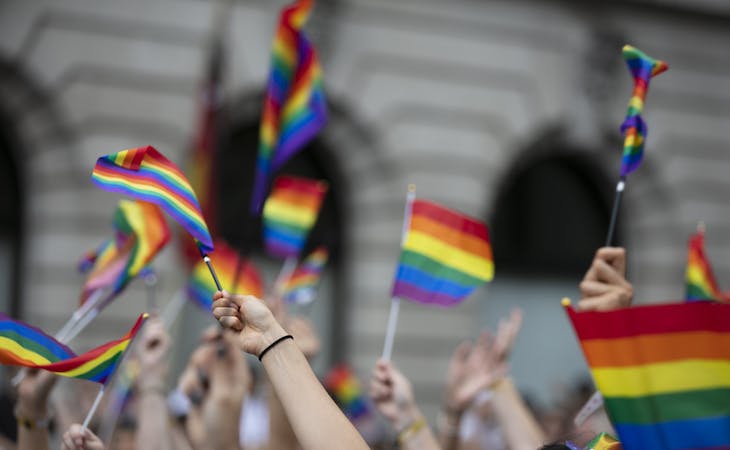It’s well-documented that everything from your personality type to your gender to your career affects your ability to get a good night’s sleep. One area that’s currently being explored in more detail is whether your sexual orientation impacts sleep as well.
Sexual orientation and sleep: a look at the research
A 2017 study published in Preventive Medicine Reports delved into whether sexual orientation has any impact on sleep—something that hadn’t been examined much previously.
“Potential differences regarding sleep behavior, a key indicator of long-term health and a growing public health concern, have yet to be studied across dimensions of sexual orientation,” noted Julie Fricke and Maria Sironi, the two study authors.
In their study of 7,646 women and 6,688 men (14,334 total), Fricke and Sironi looked at three “dimensions” of sexual orientation—sexual attraction, sexual behavior, and sexual identity—and correlated them with difficulty falling asleep, staying asleep, or simply not getting enough sleep.
Perhaps not surprisingly, they found “considerable variation regarding sleep disturbances both across and within dimensions.” But like other studies, they concluded that their results “confirm that sexual minorities report greater sleep disturbances than their heterosexual counterparts.”
While both men and women across the spectrum of sexual identity and behavior reported sleep problems, the study found that women typically had more sleep-related complaints and that sexual minority (lesbian and bisexual) women sleep worse than sexual minority (gay and bisexual) men.
Another big study of 68,960 American adults, published in the American Journal of Preventive Medicine, examined the reported sleep duration and sleep disturbances—not feeling rested, difficulty falling asleep, and waking up at night—by sexual orientation.
The total study population included 1,149 homosexual, 515 bisexual, and 144 “other” sexual minorities. Researchers Jen-Hao Chen and Cheng-Shi Shiu concluded that there are indeed “substantial disparities in sleep disturbances between sexual minorities and non-sexual minorities.”
They further noted that social and demographic factors alone can’t explain these gaps and interventions are needed to promote the sleep health of sexual minorities.
How sexual orientation can increase stress (and worsen sleep)
Clearly, something is working to undermine the ability of lesbian, gay, and bisexual people to get a good night’s sleep.
A 2018 survey of about 15,000 participants published in the journal Psychology of Sexual Orientation & Gender Diversity explained the role stress plays in all of this.
The survey included questions about insomnia, and participants answered questions about the stress they experienced in the last month. There was a focus on participants’ relationships with their parents, who can be either a source of emotional support—or a major source of stress—for people in the LGBTQ community as a whole.
In line with other research, the survey found that individuals identifying as lesbian, gay, or bisexual tended to report more problems falling and staying asleep. Women reported more issues with insomnia than men, regardless of their sexual identity.
One of the key takeaways from the survey was that family rejection creates stress, and the more family-related stress there is, the likelier it will be to develop symptoms of insomnia.
“Sleep issues aside,” says William Chum, licensed psychotherapist in New York, “LGBTQ individuals experience a higher level of baseline stress to begin with.”
He points out that “minority stress—chronic stress experienced by minority groups as a result of stigma, prejudice, discrimination—contributes to significant health disparities between LGBTQ people and their heterosexual counterparts, including a higher prevalence of mental health conditions like anxiety, depression, and traumatic stress.”
Anxiety and depression affect one’s ability to fall and stay asleep, explains Chum, “due to increased worry, negative thoughts, and feelings of sadness and hopelessness.” He adds that “anxiety, depression, and trauma also impact functioning in daily activities that will subsequently impact sleep hygiene.”
The bottom line: “If the mind is working hard to cope with anxiety or depression,” says Chum, “it’s going to be rather difficult to turn itself off to get adequate rest.”
Making it even worse, Chum says that “worrying about not sleeping can result in even more anxiety, which will make it even more difficult to fall asleep.”
Managing the stress for better sleep
If you’re experiencing stress related to your sexual orientation, there are a few practical things you can to do calm your anxiety and improve your shut-eye.
For one thing, Chum says he encourages his patients in this situation “to find ways to not include worrying about sleep into the stress that they are already managing by approaching sleep issues with compassion and non-judgment.”
Chum recommends mindfulness and meditation as effective methods that acknowledge the issue “without judgment” and offer practice in accepting it. “When an individual can non-judgmentally accept their sleep issues,” he says, “stress about sleep will decline, which will then make it easier to naturally fall asleep.”
It’s important to remember that, as Chum puts it, “there is no substitute for mental health care.” Individual therapy, support groups, or even crisis counseling are available for those who can use support in addressing anxiety, depression, or post-traumatic stress.
Chum suggests LGBTQ individuals “seek out services from providers who are LGBTQ-affirming or of lived experience to prevent further discrimination or stigmatization-related stress.”
Besides receiving appropriate care and support, as needed, Chum says, “LGBTQ folks can work towards getting better rest through building a good emotional support system to improve their sense of identity and belonging, and work towards reducing overall stress.”
Great advice for all of us who want to get a good night’s rest, no matter what our sexual orientation might be.
For more ways to soothe pre-bedtime anxiety, here’s the best nighttime routine to help you relax.




